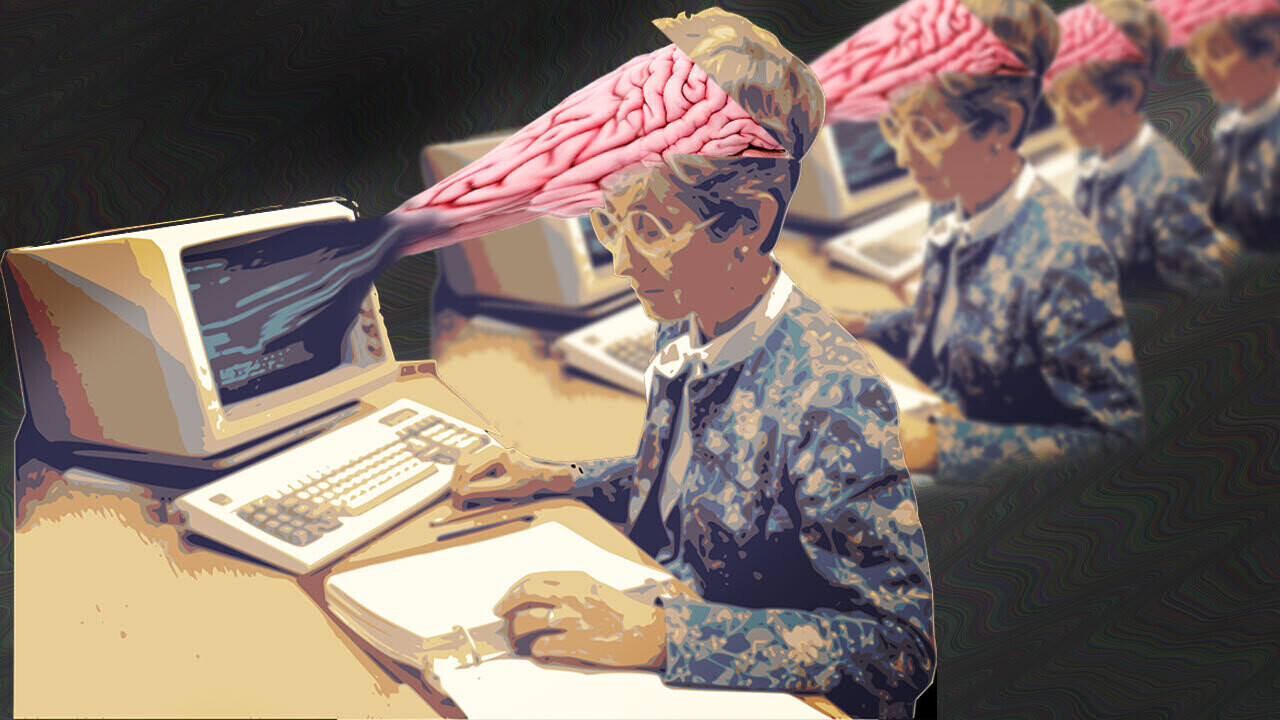
Brain-computer interfaces are slowly edging into the mainstream. After a string of scientific breakthroughs, neurotech companies are starting to commercialize their research.
Among them is Blackrock Neurotech, which focuses on restoring functions that have been impaired by disabilities or accidents.
The company is best-known for developing a neural implant that enabled a paralyzed man to control a robotic arm with his mind. In 2022, the Utah-based firm plans to launch its first commercial device.
“From an engineering point of view, all the components are there,” Florian Solzbacher, Blackrock’s co-founder and chairman, tells TNW.
“What we’re going to be launching initially is based on what a few dozen patients have used in the context of clinical studies — just a little smaller and more elegant. Shortly thereafter, we’ll have a fully implantable wireless version as well with even more capability.”

Another company that plans to implant brain chips in humans in 2022 is Elon Musk’s Neuralink.
The startup’s flashy demos and Musk’s bombastic predictions have attracted hyperbolic headlines, but many neuroscientists are skeptical about the work.
They point to the company’s dearth of peer-reviewed papers, lack of innovation, and Musk’s history of overpromising.
Some fear that the tycoon’s brash proclamations about merging humans with AI and giving everyone a brain implant will inhibit progress in the field.
“There’s a concern with Neuralink saying it’s going to become a consumer product,” says Solzbacher. “Hypothetically, that could eventually happen, and as a society we need to address that, but maybe society doesn’t want that? We need to have these discussions.
“Quite frankly, however, this scenario is not even realistic right now. And so those in positions of influence need to be careful not to create unnecessary fear.”

Musk’s involvement can nonetheless attract interest — and investment — in BCIs.
The sector is also benefiting from a range of technological advances, regulatory progress, a growing focus on neurological disorders, and the increasing experience of experts.
Solzbacher emphasizes the importance of moving step-by-step. Blackrock will initially focus on people with the most pressing needs — such ALS and severe tetraplegia — before potentially moving on to depression and other conditions where pharmaceuticals are not working effectively:
If you go into a medical device — in particular, an implant — you want to be careful and so you scale up slowly so that you can make sure you’re not making any mistakes, because the safety issues and ethical questions are a lot more profound than for a regular consumer product.

While Blackrock and Neuralink are building implants for neurological disorders, other companies are rolling out non-invasive BCIs for mass-market consumers.
Neurable, for instance, recently unveiled a pair of headphones that use brainwave sensors to measure focus levels throughout the day. The startup’s co-founder, Ramses Alcaide, told TNW that the idea is to provide an everyday BCI device:
That’s really what our focus is: how can we be like the Fitbit for the brain?
Analysts expect such non-invasive systems that record brain activity via electrodes on the scalp to dominate the commercial BCI market in the short term. In time, however, implants for able-bodied people may become a reality.
The possibilities are endless. In the distant future, BCIs could create transformative gaming experiences, improve the performance of first respondents — or turbocharge surveillance.
These applications may not arrive soon, but Solzbacher says it’s vital for tech providers to address the issues now:
We think a lot about the principles that govern how these things are released and how to engage with society. We owe that to the world. No one in the neuroscience field wants to inadvertently hurt the people we want to help the most.
While there are understandable concerns about BCIs, it would be a great shame if they constrained the immense potential benefits.
Get the TNW newsletter
Get the most important tech news in your inbox each week.





